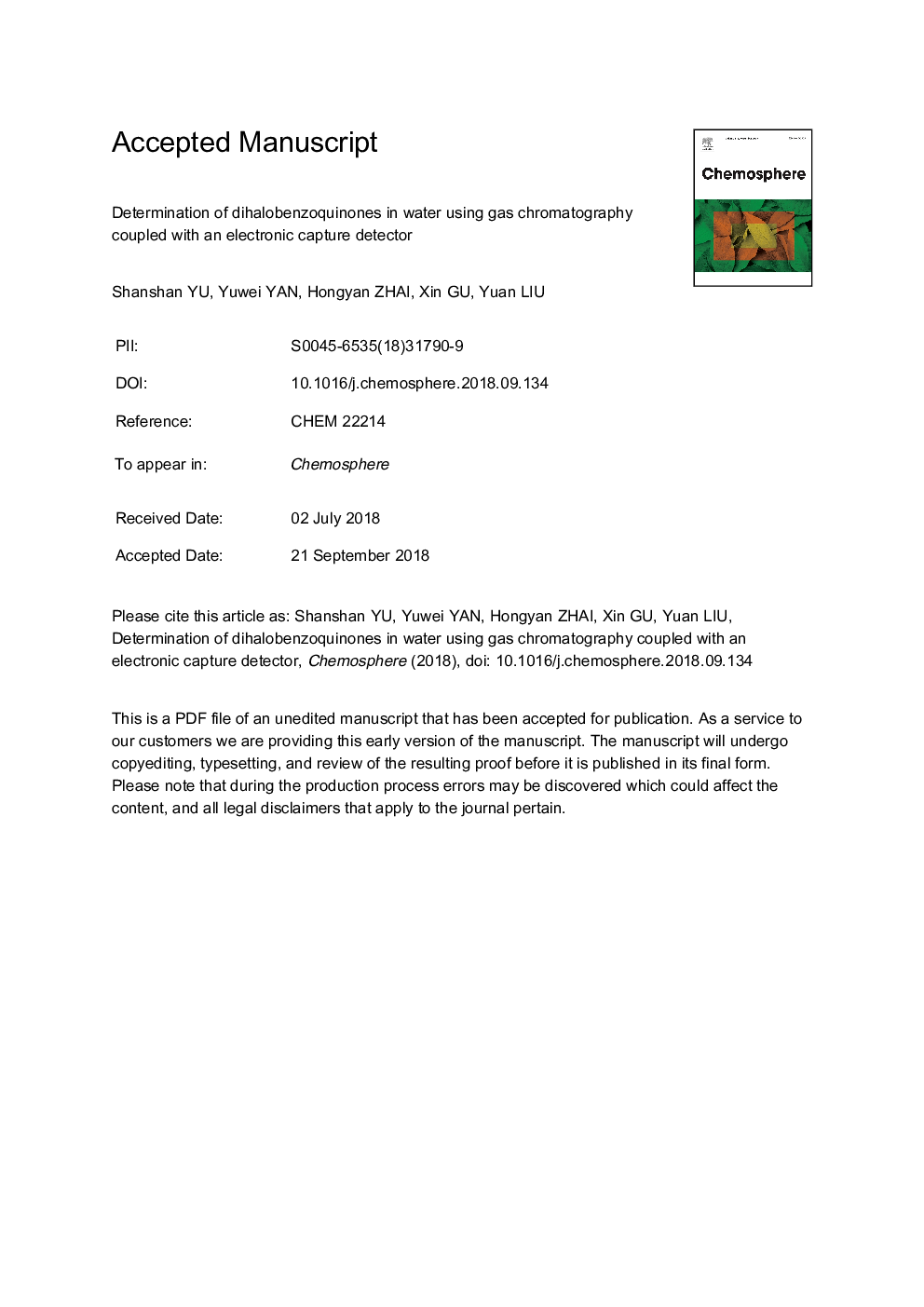| Article ID | Journal | Published Year | Pages | File Type |
|---|---|---|---|---|
| 11010216 | Chemosphere | 2019 | 18 Pages |
Abstract
Dihalobenzoquinones are a group of disinfection byproducts with high potential toxicity and thus currently receiving increased attention. A determination method of 2,6-dichloro-1,4-benzoquinone (2,6-DCBQ) and 2,6-dibromo-1,4-benzoquinone (2,6-DBBQ) was developed upon using liquid-liquid extraction and a gas chromatography with an electronic capture detector (LLE-GC-ECD). The optimized extraction condition was as the following: volume ratio of formic acid to water 0.005%, Na2SO4 dosage 200â¯gâ¯Lâ1, methyl-tert-butyl ether (MtBE)/water volume ratio 1/10, and extraction with MtBE for once. With the dosed concentrations of 0.5-5.0â¯Î¼gâ¯Lâ1, the recovery rates of 2,6-DCBQ and 2,6-DBBQ were 81%-88% and 73%-96%. The limits of quantitation (LOQs) of the LLE-GC-ECD method were 2.4 and 2.7â¯ngâ¯Lâ1 in 1-L water for 2,6-DCBQ and 2,6-DBBQ. In six local tap waters, 2,6-DCBQ was detected in the range of
Related Topics
Life Sciences
Environmental Science
Environmental Chemistry
Authors
Shanshan Yu, Yuwei Yan, Hongyan Zhai, Xin Gu, Yuan Liu,
